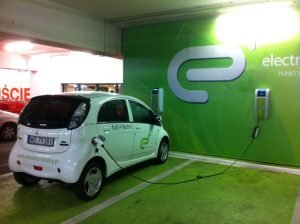A M. Devendranath, Vice President, BU Head –AC&R and Energy, Feedback Consulting, a research-based business advisory, shares insights with Clean Future, into his recent research paper that details how the government’s impetus on electric vehicles can transform India’s power sector.
What were your key objectives behind authoring – The Dilemma of Choosing Electric Vehicle Vs Hybrids Vs IC-based Auto Development in India report?
The government has a clear intent to promote electric vehicles as a future mode of mobility and various policies have been put in place to ensure that. This transformation of mobility to electric vehicles will result in green shoots but there are hiccups as well.
For a holistic growth of auto sector, we have to collectively work toward a solution that is all encompassing and does not leave any loose ends. This research paper is our attempt to highlight the green shoots and hiccups while appreciating all that the government is doing in this direction.
How do you assess the impact of the government’s ongoing focus to transform mobility on India’s power sector?
 The government’s focus on transforming mobility through a shift to electric vehicle will increase the viability of India’s power sector which is witnessing a flat rise in demand.
The government’s focus on transforming mobility through a shift to electric vehicle will increase the viability of India’s power sector which is witnessing a flat rise in demand.
A new source of power demand in terms of electric vehicles will be highly appreciated by the power sector. It may lead to a more stable power demand and that too from a paying customer segment over the years and increase the viability of the sector.
As per our research findings, most power plants have operated at an average capacity of 55% in last 3-4 years. Power demand rose 4.08 percent in 2016-17 than a year ago whereas the 12th Five Year Plan had factored in a growth of 7 percent in demand.
This combined with the ambitious renewable energy targets and growth will lead to a serious case of oversupply and the viability of a crucial engine of the Indian economy, i.e. power sector, will be in serious question.
You have also raised concerns about a possible challenge from China, if the Make In India model is not strictly adhered to in the manufacture of Electric Vehicles?
India’s electric vehicles segment has the capability to become an important contributor to the government’s ongoing Make In India initiative provided a possible challenge from China is suitably addressed,
Over the last 5 years, we have seen how Chinese solar imports have dealt a death blow to our domestic solar panels manufacturing industry and the Make in India story is a non-starter here.
We need to make sure that we do not get trapped in a similar situation in the EVs story as there is every possibility that China will be presenting a huge competition to the Indian industry in this business as well.
To tackle this issue, we would need more action on getting Lithium manufacturing in India moved towards local manufacturing in a big way and not be a nation of assemblers with core imports from China. This would need serious work in securing the raw materials for battery manufacturing.
What would be the scale of investment required, according to you, to ensure the success of the move towards Electric Vehicles?
The move to electric vehicles will need a considerable investment of approx INR1.8 lakh crore — primarily to fund the setting up charging stations and other infrastructure for electric vehicle. This will enable electronics design and manufacturing sector to have a significant play.
There will be also be a need to set up a Global Technology Center in motors design and manufacturing space going forward and we should encourage global firms to invest in India in this.
To begin with, the Union Budget for 2017-18, has allocated INR 175 crore for promotion of green cars. The fund would be utilised for establishing 200 charging stations, granting incentives for 1.5 lakh vehicles, 200 electric buses and 1,000 electric government vehicles, besides creating infrastructure for making electric vehicles and research in battery technology.
Furthermore incentives of between INR 33-66 lakhs are planned for each electric bus which typically costs around INR 1-2 crore for the imported variety and approx INR 50-80 lakhs, for those manufactured in India.
Moreover, under the JNNURM (Jawaharlal Nehru National Urban Renewal Mission), NEMMP (National Electric Mobility Mission Plan) and Smart city plans launched by the government, various state and local transport bodies are expected to purchase electric buses over the next 5 years.
How do you gauge the auto industry’s immediate response to the government’s policy initiatives in this direction like the National Electric Mobility Mission Plan 2020 (NEMMP) and Faster Adoption and Manufacturing of Hybrid and Electric Vehicles (FAME)?
The immediate impact of the government’s push towards electric vehicles may be unsettling for India’s auto sector. This could be because the industry which was mostly operating on internal combustion technology was gradually moving toward hybrids first before shifting to electric vehicles.
A trend initiated mainly by the 2015 Faster Adoption and Manufacturing of Hybrid and Electric vehicles (FAME) policy, which was launched as a part of the National Electric Mobility Mission Plan 2020, under which, the government would provide certain incentives to lower the purchasing cost of electric vehicles.
The FAME policy further ignited and pushed the Indian auto industry towards hybrids and most MNC firms had made serious investments and plans to launch many Hybrids in India.
The sudden push for EV without overtly mentioning hybrids and launch of GST with 43% on hybrids has sent a clear signal to the industry that India will move towards EVs and may look at the hybrids in between.
This will necessitate the domestic auto industry to take a relook at their skills and eco-system built over the years to ensure compliance with the changing times and the onset of EVs.
One positive aspect that remains is that private 4W segment will still require a longer time to move toward EV and this could be pushed toward hybrids with some policy interventions. This will also help the Indian auto sector to utilize the existing investments in this technology.
Lastly, what should be the ideal roadmap for India as it begins the transition from vehicles based on internal combustion technology to the energy-efficient, environmental-friendly EV platform?
The future of Indian mobility towards EVs is an ideal one and steps should be taken to ensure the Indian auto industry makes a smooth transition to the next level. There will be an urgent need for a strong policy framework to promote Indian manufacturing and support from the government to make our domestic stakeholders move towards EVs gradually.
The government also needs to extend all possible assistance to domestic auto ancillaries to move towards making EV components in India and there will a series of support initiatives required to develop products, testing infrastructure and also to re-skill our huge workforce in this area.
The government has already taken a lead in this direction and is actively promoting power PSU’s to set up the required EV charging infrastructure in the country.






